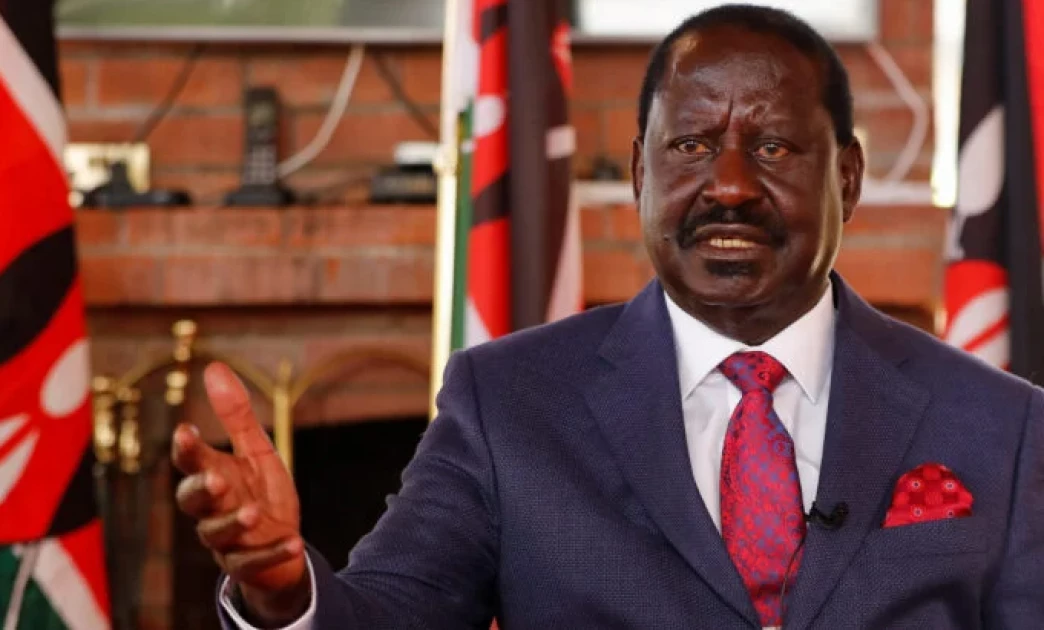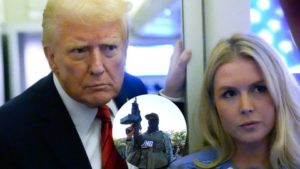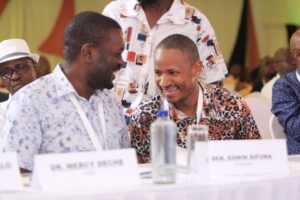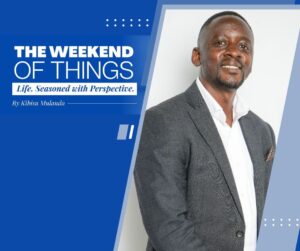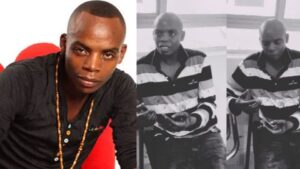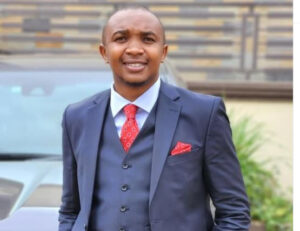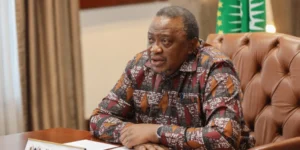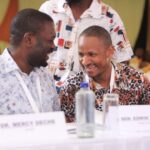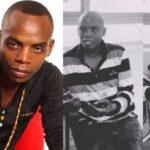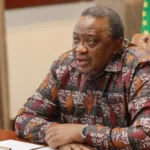The Kenyan government has thrown its weight behind Raila Odinga’s bid for the African Union chairmanship. Prime Cabinet Secretary Musalia Mudavadi highlighted Odinga’s competence and commitment to Kenya’s and Africa’s best interests during yesterday’s press briefing. This endorsement is well deserved, given Odinga’s rich political history and unwavering dedication to democracy and equality.
The Early Struggles
Raila Odinga’s political journey has been marked by significant personal sacrifices, most notably following the failed coup of 1982. Odinga, a known pan-Africanist and advocate for the marginalized, was arrested, tortured, and detained under harrowing conditions after the coup attempt. His autobiography, *The Flame of Freedom*, details his peripheral involvement in the coup orchestrated by Kenya Air Force officers against President Moi’s regime. Odinga emphasizes that his efforts were aimed at educating and mobilizing the populace for change through non-violent means.
The Ordeal of Detention
On August 1, 1982, the day of the coup attempt, Odinga was at a friend’s house in Parklands, following updates on the radio. By August 11, he was picked up by officers led by his driver from Prof. Oki Ooko Ombaka’s house in Caledonia, Nairobi. What ensued were days of brutal physical and psychological torture at the hands of the Special Branch. Despite being beaten, threatened with death, and held in cold, water-logged cells, Odinga refused to confess to any involvement in the coup. His captors subjected him to relentless interrogation and inhumane conditions, yet he remained resolute.
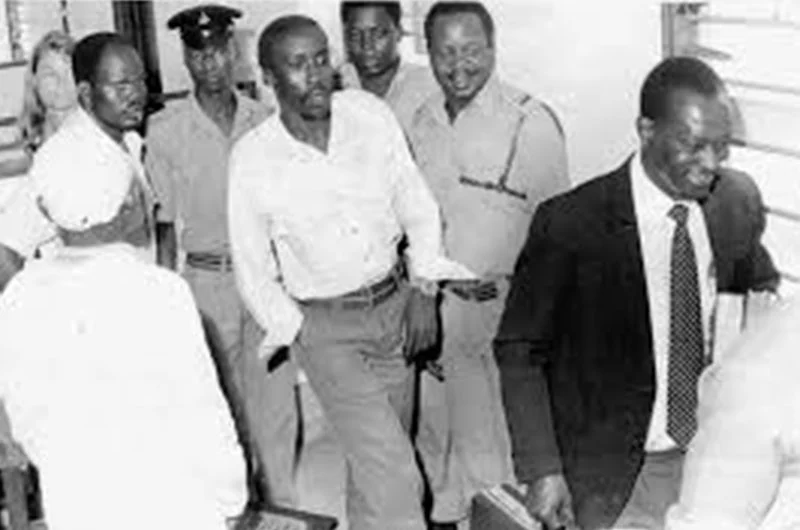
Trials and Tribulations
Odinga’s ordeal did not end with torture. He faced 13 charges related to the coup and was held in remand under degrading conditions designed to break his spirit. He was issued old and torn uniforms, given barely edible food, and kept in solitary confinement with minimal sunlight and constant surveillance. Despite being presumed innocent, he and his co-accused were treated with severe hostility. They communicated covertly with the outside world, smuggling notes hidden in their socks or under their tongues.
During this period, Odinga met other prisoners, including Kenya Air Force men, who faced court-martial and were often sentenced to death. The grim reality of their fate highlighted the high stakes of their struggle against dictatorship and corruption.
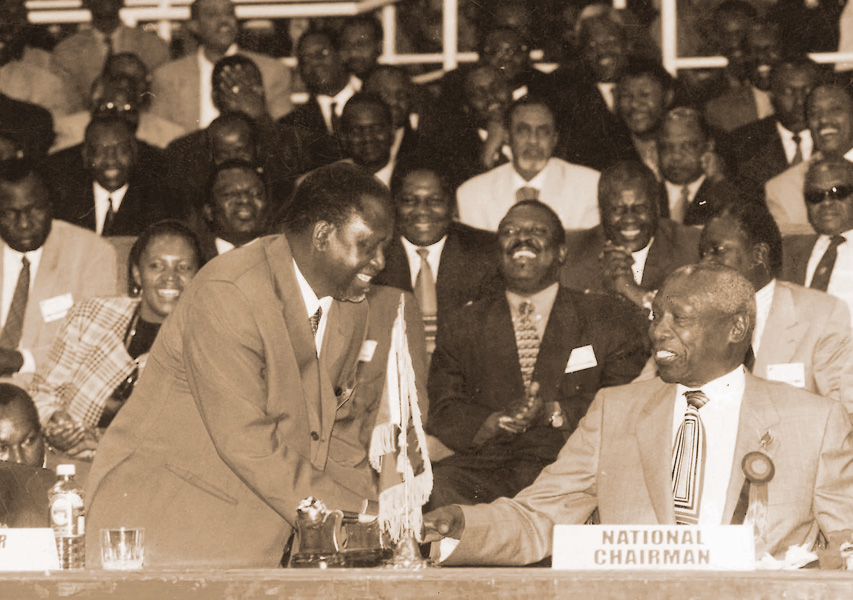
The Unexpected Release
After numerous delays, Odinga’s trial was set for March 24, 1983. However, the day before the trial, the prosecution announced that the state no longer wished to pursue the case. This unexpected turn saw Odinga and his co-accused briefly regain their freedom, only to be detained again immediately. They were taken to Kamiti Prison’s isolation block, a move that signaled the beginning of another phase of their struggle.
Odinga’s detention without trial continued until February 5, 1988, when he was unexpectedly released by President Moi. During his confinement, Odinga made several attempts to challenge his detention legally. His wife, Ida Odinga, sought a lawyer brave enough to take on his case. Only Gibson Kamau Kuria accepted the challenge, despite facing significant obstacles. Odinga was transferred to another prison on the day of his court hearing, preventing him from appearing in court.
A Voice for the Oppressed
Before his release, Odinga, along with other detainees, was taken to meet President Moi. During this meeting, Odinga candidly described the appalling conditions in prison and the inhumanity of detention without trial. Moi responded by acknowledging the grievances and declared it was time for the detainees to re-join society.
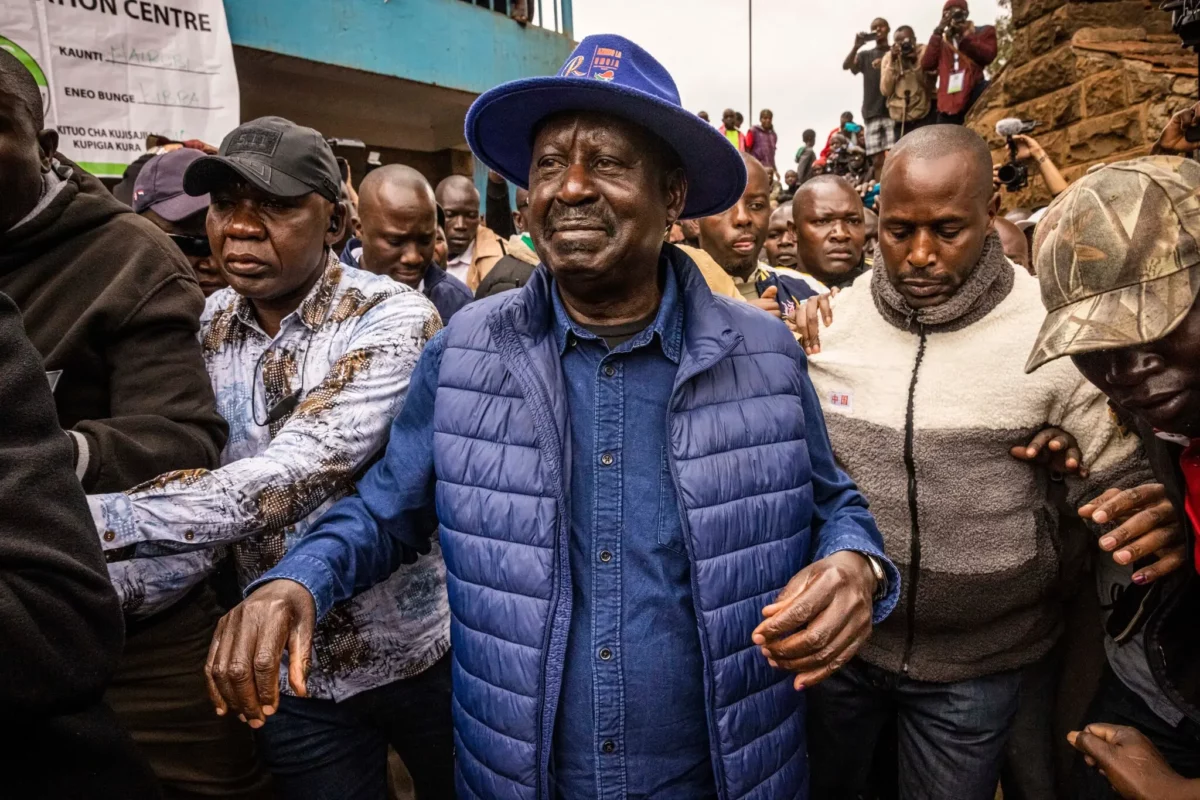
Raila Odinga’s release marked the end of a gruelling chapter in his life but not the end of his fight for democracy. His experiences underscore his resilience and dedication to justice. As Kenya supports his bid for the African Union chairmanship, Odinga’s story serves as a powerful testament to the enduring struggle for freedom and equality in Africa.


